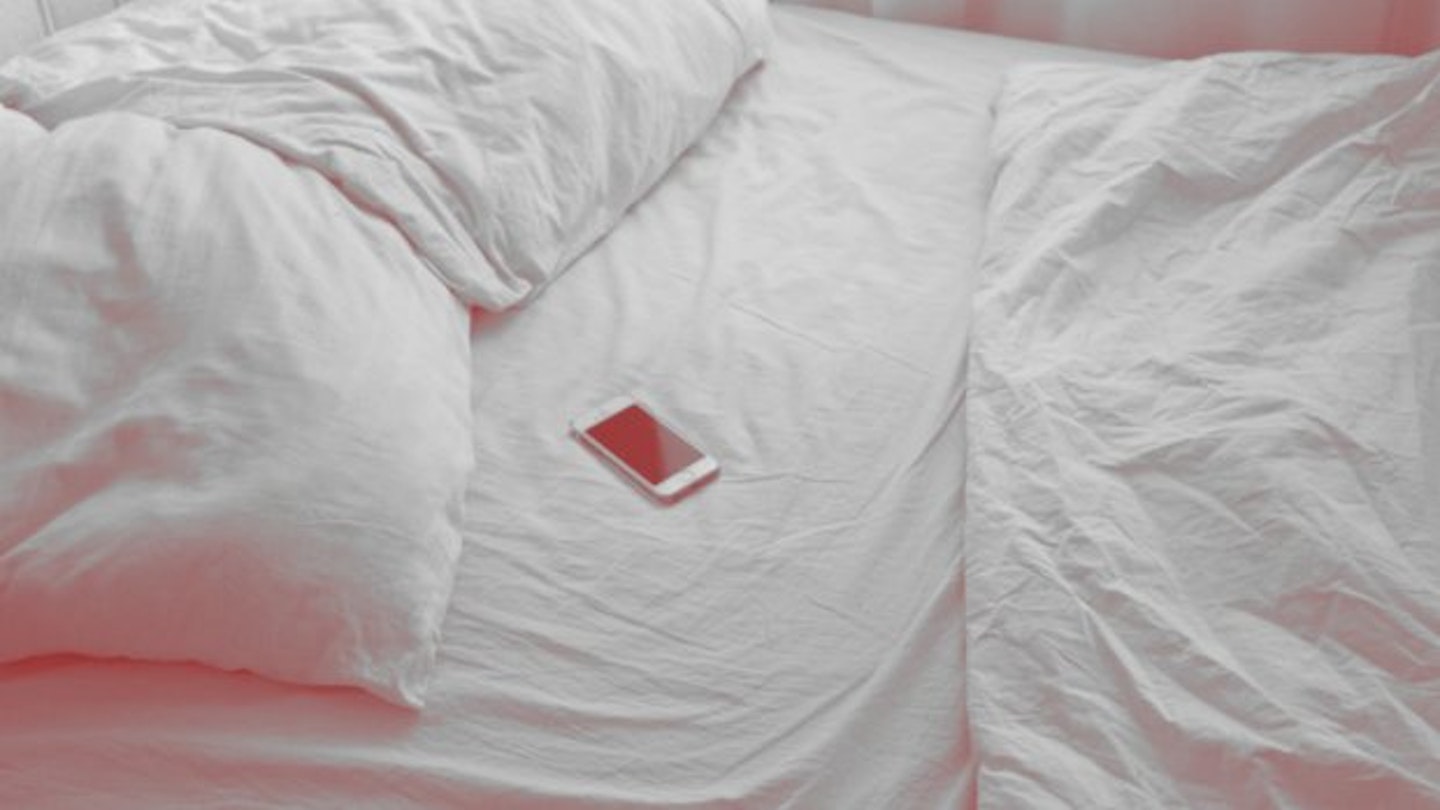You know how it is – you’ve been up all night sick with work/money/boy/all of the above anxiety, counting down the miserable number of hours you’ve got left until your alarm goes off and you’ve got to head off to work. For hour upon grim hour, falling asleep has seemed like a far away impossibility but, by some sweet miracle, you finally feel yourself nodding off when suddenly you hear your phone vibrating next to you head.
You know you should leave it until the morning, but it’s just too tempting – you check the email (it’s spam), but as you’ve got the phone in your hand you might as well see if anyone’s sent you a WhatsApp? Or a Facebook message? Or liked a picture on Instagram? No one? Well, maybe something interesting happened to Kim Kardashian, which you really ought to check out?
Before long, you’ve gone from nearly asleep to wide awake again, with two hours of bed time left before it’s time to get on the bus into work. Again. Great.
It’s a grim cycle, but one that’s becoming increasingly familiar to us if the latest research is to be believed. According to Ofcom, eight in ten of people in the UK keep our mobiles on overnight, with around half of us using the devices as an alarm clock. The numbers are even worse for those of us in our 20s, because apparently 83% of us actually sleep with our phones in our beds.
Experts are concerned that sleeping with our phones in our bedrooms makes us ‘hyper-vigilant’, so our sleep is more likely to be disturbed and less ‘restorative’, causing insomnia or other sleeping problems. This is especially bad news for girls, because scientists at Duke University in Durham, North Carolina have discovered that women actually need more sleep than men. As well as developing a higher risk of heart disease, depression and psychological problems, women who don’t get enough sleep also tend to have extra clotting factors in their blood, which could lead to a stroke. Yikes.
The thing is, we all know that we’re not going to stop taking our phones to bed with us any time soon, so is there anything – beyond turning your phone onto airplane mode – that we can do with our mobiles to make them more conducive to sleep? We decided to investiage the apps any sleep-deprived smartphone addict needs to get:
Sleep Cycle Alarm Clock
One of the grimmest parts of getting up when you haven’t had enough sleep is hearing that brain-piercing alarm go off next to your head. Sleep Cycle Alarm Clock promises to all but eliminate that problem by waking you up gently when you’re naturally in your lightest sleep. It’s an alarm clock that collects your ‘sleep data’ and monitors your sleep cycles to wake you up when you’re naturally at your least groggy. You set the app to wake you up within a 90-minute window so you don’t completely miss your morning meeting for the sake of sleep science. There are 15 alarm melodies to choose from, plus the capability to use music from your iTunes. If, like us, you like to be woken up to ‘Get On Up’ by James Brown.
UP by Jawbone
You’ll need to buy a smart, data-collecting bracelet called a Jawbone for this. At £99 they're not cheap, but are great for tracking you exercise and eating patterns, as well crucially anyone who wants to get serious about sleep. The combined system allows you to track minute details of your daily life from sleep patterns and physical activity to your food and drink intake and will provide you with detailed insights on how to achieve your goals. Basically, it allows you to see details about your sleep patterns over time and figure out the patterns that affect how you feel once awake. You can also check you check when you’re coffee hit wears off and the wrist band wakes you up gently and silently at the time when you’re likely to feel most refreshed. Sounds better than being woken up by snoring, doesn’t it?
Deep Sleep with Andrew Johnson
An alarm is all very well and good once you’re actually asleep, but what about people who often struggle to even make it that far? Well this Android and iPhone app from Andrew Johnson, one of the foremost clinical hypnotists in the UK, might be for you. It’s basically recordings of his dead-soothing voice taking you through a relaxing, guided meditation. It’s designed to help you switch off, relieve stress and get back in touch with your inner calm – so it’s perfect for the stress heads amongst you.
Deepak Chopra Dream Weaver
Along the same lines, this Android and iPhone app uses LED and strobe lights synchronized with Deepak’s narration, music and something called ‘holographic sounds’to relax you and send you into a bit of a trance before bed time. The strobe lights pulse rhythmically through closed eyelids, which puts you in a meditative, relaxed or dream state. It’s expensive, but cheaper in the long run that necking a bottle of wine before bed to unwind. And no doubt healthier, too.
Follow Sophie on Twitter @sophiecullinane
This article originally appeared on The Debrief.
